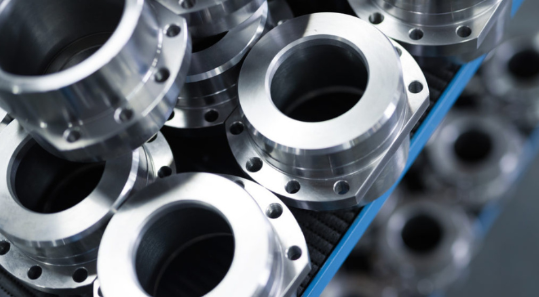Titanium is often celebrated as one of the most durable and corrosion-resistant materials in the world, which is why it is frequently used in critical applications where strength and longevity are required. Whether in the aerospace industry, medical field, or even in everyday items like watches and bicycles, titanium has found its place in numerous applications. However, many people are curious: can titanium rust? This question arises from the fact that rust is a common issue with many metals, especially iron-based ones.
In this article, we will take a closer look at titanium and its unique properties, explaining why it is so resistant to rust. We will also explore various applications of titanium across different industries and discuss the factors that contribute to its popularity in fields where other metals might fail. So, let’s dive into the world of titanium and uncover the truth about whether this metal is susceptible to rust and corrosion.
What is Titanium?
Titanium is a lustrous, silver-colored metal known for its impressive strength-to-weight ratio. It is the ninth most abundant element in the Earth’s crust, though extracting it is not an easy process due to the challenges associated with its refinement. Titanium is categorized as a transition metal and shares some characteristics with other metals, such as high melting points and the ability to form a wide range of alloys. The element was first discovered in 1791 by William Gregor, but it wasn’t until the 20th century that methods were developed to extract it efficiently.
Its combination of lightness and strength sets titanium apart from many other metals. It is roughly as strong as steel but weighs significantly less, making it a go-to material in industries where minimizing weight is crucial, such as aerospace and automotive manufacturing. Additionally, titanium’s corrosion resistance is one of its most praised features, which brings us to whether titanium can rust like other metals.
Beyond its physical characteristics, titanium also plays a significant role in modern technological advancements. For example, in the medical field, it is often used for surgical implants and prosthetics because it is biocompatible, meaning it does not trigger adverse reactions when in contact with the human body. Its integration with bone tissue makes it ideal for long-term medical use. In everyday life, titanium is found in various products, from high-end sports equipment to durable consumer electronics. The versatility of this metal is primarily due to its exceptional properties, which are often enhanced when combined with other elements to form a titanium alloy.
Can Titanium Rust?
The term “rust” typically refers to the corrosion of iron and iron-based metals, where oxygen and water react with iron to form iron oxide, a reddish-brown flaky substance that weakens the metal over time. Titanium, however, behaves quite differently when exposed to the same elements. Unlike iron, titanium forms a protective oxide layer when it comes into contact with oxygen. This thin layer of titanium dioxide prevents further corrosion by acting as a barrier that seals the metal from the surrounding environment.
Because of this oxide layer, titanium does not “rust” in the traditional sense. It is resistant to both oxidation and corrosion in most environments, including those that are harsh and aggressive, such as saltwater and chlorine-rich atmospheres. This is one of the key reasons why titanium is often used in applications that involve prolonged exposure to water and other corrosive substances. For instance, it is a common material in marine engineering and is often used for ship parts, offshore oil rigs, and even submarines.
Although titanium doesn’t rust, it is not entirely impervious to damage. In extreme environments, such as high-temperature acidic environments, titanium can suffer from a form of corrosion known as “crevice corrosion” or “pitting corrosion.” However, these are rare and typically occur under very specific conditions. For most practical purposes, titanium can be considered virtually immune to rust and corrosion.
Another aspect that contributes to titanium’s resistance to corrosion is the fabrication metal process. During the manufacturing of titanium parts, precise techniques are used to ensure that the material maintains its integrity and protective properties. This is particularly important in industries such as aerospace and medical devices, where even slight corrosion can have serious consequences. Fabrication techniques are designed to protect titanium’s natural resistance and ensure it remains strong and durable over long periods of use.
Applications of Titanium
Titanium’s remarkable properties make it a valuable material in numerous industries, each taking advantage of its unique combination of strength, light weight, and corrosion resistance. Here, we’ll look at some of the most notable applications of titanium and explain why it has become such a vital material in modern manufacturing and engineering.
Aerospace Industry
The aerospace sector was one of the first to recognize the potential of titanium, especially in the production of aircraft, spacecraft, and other aerospace components. Titanium’s high strength-to-weight ratio makes it an ideal material for manufacturing parts that need to be both strong and lightweight. The fact that titanium is highly resistant to heat and corrosion also makes it perfect for use in jet engines exposed to high temperatures and extreme environmental conditions.
Furthermore, titanium alloys are often used in aircraft structural components, such as landing gear, airframes, and wings, where reducing weight is essential for fuel efficiency and overall performance. Titanium’s ability to withstand the harsh conditions of space also makes it a popular choice for satellite components and space exploration missions.
Medical Field
Titanium’s biocompatibility has made it a standard material in the medical industry, particularly for surgical implants and prosthetics. For example, titanium is commonly used in joint replacements, dental implants, and bone plates due to its ability to integrate with bone tissue without causing adverse reactions. Over time, the titanium implant fuses with the surrounding bone, ensuring a long-lasting and durable solution for patients.
Another reason titanium is favored in the medical field is its resistance to corrosion. Since implants must remain in the human body for years, sometimes decades, it is crucial that the material does not degrade over time. Titanium’s inert nature means it does not react with bodily fluids, making it the perfect choice for medical devices that must remain stable over the long term.
Marine Engineering
The marine environment is one of the most corrosive environments for metals due to the presence of saltwater, which accelerates corrosion in many materials. However, titanium’s corrosion resistance makes it highly suitable for marine applications. Components made from titanium are often found in ships, submarines, and offshore oil platforms, exposed to saltwater and other harsh conditions.
One of the biggest advantages of using titanium in marine engineering is its ability to withstand prolonged exposure to saltwater without deteriorating. In fact, titanium has been used in desalination plants and underwater pipelines, where other metals would quickly succumb to rust and corrosion. The durability of titanium in these environments ensures that parts and structures remain functional for longer periods, reducing maintenance costs and improving overall efficiency.
Consumer Products
In recent years, titanium has also made its way into various consumer products. Its lightweight, durable, and corrosion-resistant nature makes it an ideal material for high-end items such as watches, eyewear frames, and even smartphones. Additionally, titanium is frequently used in sports equipment, including golf clubs, tennis rackets, and bicycle frames, due to its combination of strength and lightness.
The use of titanium in consumer products is not just about functionality; it also adds a premium feel. Many manufacturers choose titanium for its sleek and modern appearance, which appeals to consumers looking for durable, long-lasting, and aesthetically pleasing items. The metal’s non-corrosive nature ensures that these products remain in excellent condition, even after prolonged use.
Chemical Processing Industry
Another industry that heavily relies on titanium is the chemical processing sector. Here, titanium is used to manufacture equipment that comes into contact with corrosive chemicals, such as reactors, heat exchangers, and storage tanks. The reason for titanium’s popularity in this industry is simple: it can resist the corrosive effects of many industrial chemicals that would otherwise damage other metals.
For example, titanium is resistant to chlorine, which is commonly used in chemical processing and can be highly corrosive to materials like stainless steel. Titanium’s ability to maintain its structural integrity in such environments makes it a cost-effective solution for industries that need long-lasting equipment.
Conclusion
In summary, titanium is an exceptional metal that boasts a wide range of unique properties, making it one of the most valuable materials in modern engineering and manufacturing. From its impressive strength-to-weight ratio to its resistance to corrosion, titanium has become a go-to choice for industries that require durable and long-lasting materials. While titanium does not rust in the traditional sense, its ability to form a protective oxide layer ensures that it remains resistant to corrosion in most environments.
Whether it’s used in aerospace, medical devices, marine engineering, or consumer products, titanium continues to prove its worth in applications where other metals might fail. Its versatility is further enhanced when combined with other elements to form titanium alloy, adding even more strength and resistance to wear and tear. As we continue to push the boundaries of technology, titanium will likely remain a cornerstone material in many of the world’s most critical industries.
While no material is entirely immune to damage, titanium comes close by offering durability and resilience that is hard to match. This combination of strength, lightness, and corrosion resistance ensures that titanium will continue to play a central role in the future of fabrication metal processes, contributing to innovations across multiple fields for years to come.



